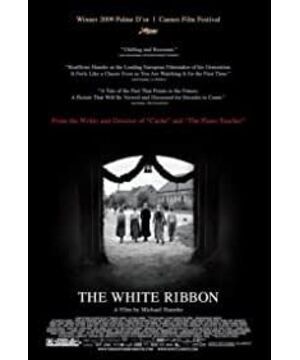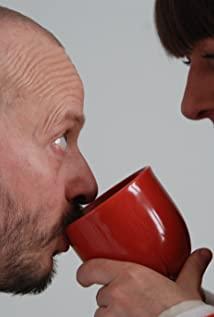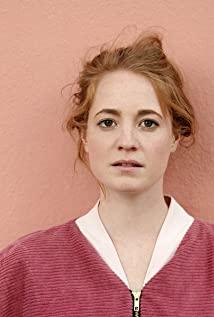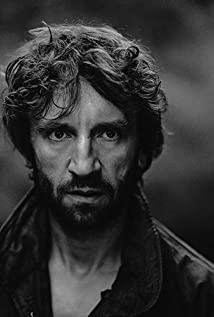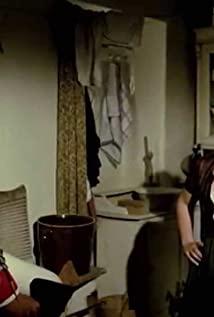I mean, their culture was once so oppressive, so dark, so suffocating. They, the Germans, are said to have a liberal tradition of the West. This movie is simply "Red Lanterns Hanging High", "Peacock", and "Blue and Red". What matters is not the plot, but the atmosphere, the impossibility of happiness in an infinitely deep well.
Can you imagine such a world? A newborn baby is extremely delicate and pure, but from the first day he is born, you know that he cannot be happy in this life, and the world he came into cannot give him happiness. The world is against happiness. This is the enemy of happiness. It holds a fly swatter and looks around to find happiness. Once found, it will beat them to death.
In "White Ribbon", the pastor is the one who holds the fly swatter in his hand: his children are playing outside and come home late and beaten up; his son Martin is found masturbating, and he has to tie his hands to sleep since then. On the bed frame; he scolded the children for sparring at recess...out of love for the children and for God, he carefully nurtured in the children's inner world a head called guilt Beast, so much so that one day, Martin ventured across a high-altitude single-plank bridge, and when asked why he did it, he said, "I want to give God a chance to kill me".
Really, who was happy in this German village in 1913? The farmer's family lived on the poverty line. After being dismissed by the manor owner, he hanged himself to death; the housekeeper lived under the protection of the manor owner, and could beat his son for the loss of his master's son's whistle; the midwife wanted to please the doctor. Be a cow and a horse, but the doctor said to her: You make me sick; children live in arbitrary beatings and scolds by adults, and become secret "terrorists" in the village. What matters is not pain, but the inevitability of pain. Everyone suffers and passes it down the assembly line. The power relations in the village are so intertwined and seamless, it's almost like a piece of technology, almost like art.
The point is that the oppressors are no better off than the oppressed. The owner of the manor is constantly subjected to "class revenge" actions: the child is beaten, the house is burned; the doctor who bullied his wife, lover and daughter was framed and injured; the pastor's "love" for his children did not exchange for gratitude, on the contrary, his pet bird He was stabbed to death by his own daughter with scissors. As maintainers of order, the "people in power" in these villages have to lubricate the power machine so it doesn't rust, guard it so it doesn't get stolen, pay rent so it doesn't get taken away...their pain is theirs The suffering of the oppressed has geometric symmetry.
It is frightening that, looking at human history, the history of the enemy of happiness is almost all of our history. No matter in the East or the West, most of the time, "ancestors" are telling children: no fun, no masturbation, no loud noise, no thinking like this, no talking like that...the same world, the same nightmare. That is to say, there have been so many, so many delicate, pure babies in history, who came into the world one by one, passed through the assembly line of the power machine one by one, entered life, and came out...they Never came out again.
I can't think of any path to happiness other than freedom.
Although there are cultural relativists, postmodernists, lovers of traditional civilization... who hate modernization, I think the reason why I am willing to be a less cool, less politically correct, and firm "modernization" like Fukuyama Advocate, because I aspire to a happy world, and I can't think of any path to happiness except freedom.
Director Heneke said in an interview that he wanted to use the film to show "the consequences of terrorism in all its forms." I think he means that the essence of all power relations is "terrorism": economic personal attachment, religious dogmatism, gender oppression... and the consequences of these "terrorism", in that village , is the "conspiracy to sabotage" activities of those children: when a person's right to pursue happiness is taken away, the pain of others becomes his pleasure.
But even in such a village, there is still love and poetry. One of the most unforgettable scenes in the film: the pastor's young son nervously pulled out a wounded bird from his arms and whispered to his father if he could adopt it. After his father agreed, in this almost no smile film Inside, his eyes lit up and he showed a surprised smile. Even such a cold world cannot destroy the germs of love. I think humans are so bad at being happy that it's simply not worth saving, but the desire to love and be loved also gives a bottom line to the clumsiness of this species.
View more about The White Ribbon reviews


